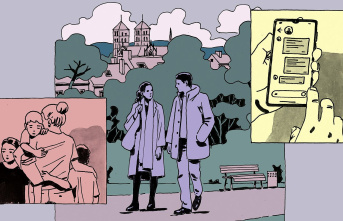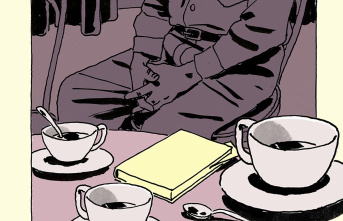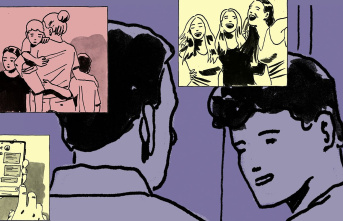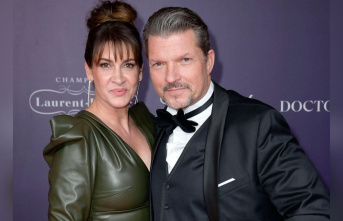We live in tumultuous times. Many people are wondering how they can deal with the crises of these days without jeopardizing their mental health. Together with your colleague Saskia Rudolph, you support people with positive psychology at spiegelneuronen.info. What is it about?
The essence of positive psychology is that we are all asked to take care of ourselves and empower ourselves, rather than always asking ourselves what to do when I'm feeling down. So it's not about curing mental illness. Rather, the focus is on how you can shape your life in a self-determined and happy manner.
So is Positive Psychology a topic that only healthy people should study?
My basic attitude is: Positive psychology is good for everyone. There are even some diseases that can be positively influenced with the help of psychological interventions. These include autoimmune diseases and all stress-related chronic diseases. But diabetes or cardiovascular diseases can also be positively affected by consciously dealing with oneself.
Positive psychology can therefore have a positive influence on physical illnesses. But what if I have mental health issues?
I think in that case you have to be careful not to put yourself under pressure. This happens, for example, when you think: To be happy, all I have to do is try harder. That is a very wrong message, but one that is unfortunately conveyed again and again. In any case, it makes sense to deal with your mental illness. But if I'm stuck in a depression, I don't have to deal with the goals for the next ten years. In this case, it's more about small steps towards improvement.
Apart from mental illnesses and crises: what do we need to live happily?
I like to use a metaphor to illustrate this: Imagine life as a tape recorder. Each of us is given our own mixtape at the beginning of our life. There are things on the A side that we can't control. These are, for example, our genes, socialization and our parental home. That's 50 percent that we can't change - but they still shape us.
And what if we don't like this cassette?
It would be a shame to throw it away because we only have this one. But we can turn the cassette around. There are a few things on the B-side that are already preset: strokes of fate and good and bad experiences that happen to us. But: There are also a few songs that we can record ourselves, about 40 percent.
And how exactly do we record the cassette of our lives?
So that we can import our playlist, we need a recorder with different buttons. There's the "Play" button. It stands for everything that inspires, drives and motivates us. The "Pause" button stands for what promises us relaxation and regeneration - i.e. the quiet moments in life that we like to overlook. These are also extremely important. There is also the "rewind" button, which allows us to see what has shaped us throughout our lives and what we are grateful for and proud of. Then there is the "record" button, which allows us to preserve all the people, moments and feelings that are important to us. And there's the "Fast Forward" button. This is about our goals, dreams and values in life. Perhaps you have already guessed: for a happy life we need all keys.
A beautiful picture of the diverse areas of influence on our well-being. But what can we do with it in practice?
With the picture you can always ask yourself in everyday life which button you are stuck on. For example, am I fast forwarding and living exclusively in the future, or do I also look at the here and now and take things into my own hands? Or would it be time to hit the pause button again?
So, as so often, it's about self-reflection...
Exactly. Self-reflection is the be-all and end-all. We have to learn to look at ourselves and to question ourselves. We should find out what our strengths are and what we really want from life. The first step here is: give yourself some time. Ten minutes a week is enough to deal with specific questions. The problem with reading guidebooks is often that you only skim the questions. It is therefore important to really take the selected questions to heart and, ideally, to write down your answer.
Honest self-reflection is now almost the supreme discipline of personal development. How can I start with this?
Books and films can help with self-reflection. By gaining an insight into other worlds of thought, we automatically question ourselves accordingly. We often notice parallels or differences in topics that we might not have thought about at all. The same also happens in direct exchange with other people.
So do I absolutely need healthy self-reflection in order to be happy?
Not necessarily. There are many people who do little self-reflection and still get through life very well. Anyone who has simply noticed a lot of resources and a positive basic attitude on the A-side naturally has a significantly lower risk of mental illness. But there is also the possibility that this will change due to a stroke of fate. I think it definitely helps to do self-reflection. Because then you notice more quickly when something is wrong and can intervene earlier.
Aside from self-reflection, what helps to actively take care of your mental health?
Especially in the current time with the war, the climate crisis and Corona, it is extremely important to see what you can really influence yourself. We can't really control most crises, but we can to some extent control our own lives. That's called self-efficacy - and it's real balm for our soul. The opposite would be the loss of control. And that's what can make you sick in the long run.
And what about an optimistic attitude towards life and all its adversities?
Positive psychology is often confused with positive thinking. The goal is not that we go through the world beaming with joy every day. That's simply not possible. So the first step is that we first accept that there is a lot of hustle and bustle and that it does something to us emotionally. Our emotional world is like a color palette - there are very happy and bright colors, but also a very dark palette. Positive psychology does not say that we paint in the brightest colors every day, but that we recognize this diversity. As a result, sooner or later we achieve a certain quality of life.












